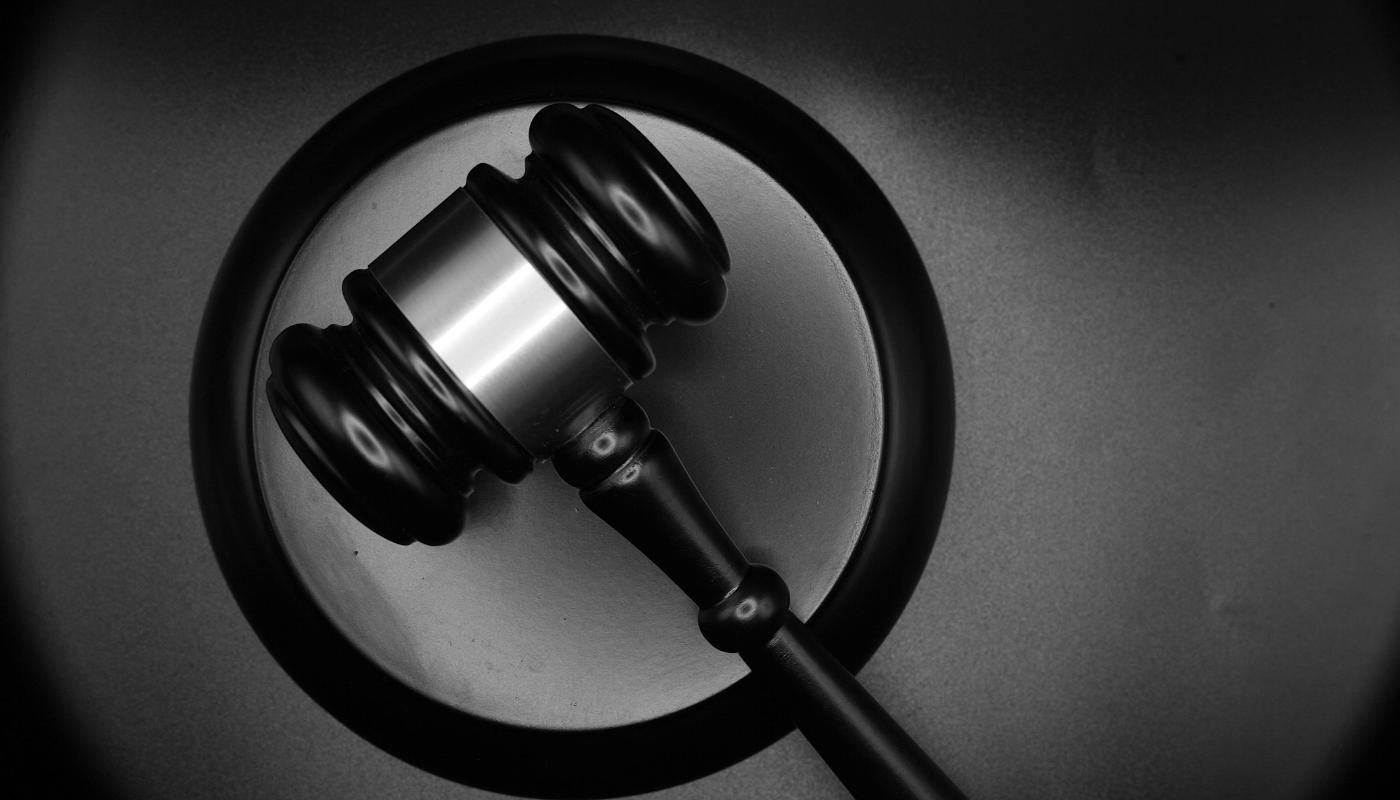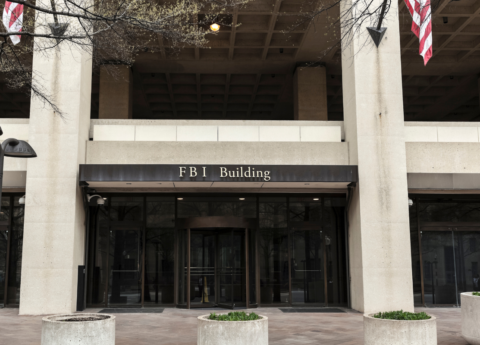Involvement in the criminal legal system, even just once, can have long-lasting consequences that negatively affect social and economic mobility, and quality of life. An estimated 38% of Kentucky adults have a criminal record and many qualify to have a past offense removed from their record, or expunged, under existing state law. However, only a small number of those who qualify for expungement in Kentucky receive it, due to significant barriers within the current process that make it difficult to access that second chance. In addition to helping those who receive it, expungement can also positively impact their families and local economies.
Proposed legislation in both the House and Senate – House Bill (HB) 569 sponsored by Representative Kevin Bratcher and Senate Bill (SB) 218 sponsored by Senator Brandon Storm – would automate Kentucky’s expungement process and eliminate associated fees, making it more accessible to people who are already eligible to have their records cleared under current law but experience barriers with the current system.
Having a criminal record limits opportunities
The criminal legal system has a vast reach in Kentucky – with over 30,000 Kentuckians behind bars, an additional 60,000 on community supervision and hundreds of thousands returning home from jail and prison each year. Even after a sentence of incarceration or supervision is complete, the stigma of a criminal conviction is long lasting.
Because most employers run background checks, the mere presence of a past conviction can impact someone’s ability to get a job. This problem is evidenced by the significantly higher unemployment rate of formerly incarcerated people compared to the general population. Despite employment being tied to lower rates of recidivism and better health outcomes, securing a stable job remains a challenge for many with criminal records.
Having a criminal history can also impact access to housing assistance, educational opportunities and even prohibit someone from volunteering at their child’s school. These barriers make it more difficult for formerly system-involved Kentuckians to rebuild their lives, provide for their families, and positively contribute to their local communities and economies.
Current expungement laws are extremely underutilized due to system barriers
Expungement – the process by which someone can have a criminal charge or conviction removed from their record – is already available to many Kentuckians.
Nearly all misdemeanor convictions are eligible for expungement after a waiting period, and an unlimited number of convictions for a single individual can be expunged, even if they were in different cases or counties. Only certain low-level felony convictions are eligible, and no convictions – misdemeanor or felony – that are sexual in nature or crimes against children can be expunged.1
Individuals with an eligible conviction must also meet the following criteria to be eligible for expungement:
- No criminal charges currently pending,
- No misdemeanor or felony convictions in the past five years, and
- It has been at least five years since the competition of their sentence (this includes any time on supervision (any form of probation and parole) and the payment of any fines, fees or restitution).
However, eligible individuals must take action to receive an expungement, and the process can be confusing and burdensome. First, the person must obtain a “Certificate of Eligibility.” This certification is provided by the Administrative Office of the Courts (AOC) in Frankfort, and it ensures the judges and prosecutors have accurate and current information regarding the status of the applicant and their criminal history.2 An applicant can request the certification in person, online or through a mail-in process. There is a $40 cost to submit the form. AOC will then process the form and give the applicant a “certification packet” either online or by mail. Once the applicant receives this packet, they have 30 days to file their petition for expungement with the court.
The petition itself is the document that outlines which conviction(s) the person seeks to expunge. To file a petition, someone either needs to file paperwork at the courthouse where the case they are seeking to expunge was prosecuted or hire an attorney who can file the paperwork online or in person for them. Applicants can also file additional paperwork to have filing costs — $100 per misdemeanor case and $250 per felony case —waived, but that decision is up to the judge.3
Once an expungement petition is properly filed, the prosecuting office has an opportunity to object if it considers expungement inappropriate. If there is an objection, the judge will likely require a court hearing, where the applicant and/or their attorney must appear to show evidence why the expungement should be granted. In cases where there is no objection, the judge will order expungement if he or she agrees it is appropriate.
An analysis of Kentucky expungement case data from the AOC from 2016 to 2018 found that most successful cases took under six months, but some took more than two years to be finalized.
While many Kentuckians are eligible for expungement under current law, fewer than 10% of those eligible petition the court to have their records cleared. If the process were automatic, an estimated 572,000 Kentuckians would benefit from a completely clear record.
There are a number of barriers with the way the expungement process currently works that are preventing eligible people from taking advantage of the process:
- One barrier is financial. A survey of 215 Kentuckians who attended free expungement clinics said cost was the greatest barrier to not seeking expungement earlier.
- The process can also be confusing. Many do not know if they are eligible and may require consultation with an attorney to determine if they qualify, get assistance gathering and filing necessary paperwork and learn how to move forward. And expungement is not a proceeding for which someone is entitled to a public defender. Thus if an applicant wants the assistance of an attorney, they must either find and attend a free clinic, obtain the services of an organization that will represent them at no cost (such as Legal Aid), or hire an attorney.
- Additionally, because the eligible person must appear in court, there are likely also transportation and child care barriers that make people less likely to engage in the process.
Automating the expungement process will help more Kentuckians take advantage of a second chance
HB 569 and SB 218 seek to remove some of these barriers so more people who are already eligible can access expungement services. The bills do not propose an expansion to expungement eligibility criteria but do change the process so that no action would be required by an eligible person to petition the court.
If the proposed legislation passes, starting in July 2027, the expungement process will become automatic when a person becomes eligible. At the beginning of each month, AOC will compile a list of expungement-eligible cases in each county and send on to corresponding counties by the 15th of each month.
Upon receiving this list from the AOC, for misdemeanors each county has 30 days to order the conviction vacated and expunge records. Notice will be sent by mail to the person whose case is expunged, so they are aware that the process has started. To ensure the court is sending notice to the most updated address, it will use the address on file with the state Department of Transportation, which is typically the address listed on someone’s driver’s license.
For felony convictions, upon receiving the list from AOC each month the county must notify the original prosecuting office. If the prosecutor does not object to the expungement within 60 days, the court will vacate the conviction and expunge records.
If there is an objection from the prosecutor within that 60 day period, the court must notify the person whose case it is, and the person can petition the court for expungement under the process that exists in current law, where there is a court hearing. In that hearing, the person must appear in court and show that in their situation:
- Expungement is consistent with public safety,
- Expungement is supported by the person’s behavior since the conviction (they have been rehabilitated and living a law-abiding life since conviction),
- It is in the “interest of justice” to order an expungement,
- And any other information the court views as necessary to consider.
In these cases, the judge will make a final decision about whether expungement is appropriate.
In the coming weeks, the General Assembly can advance reentry support for formerly incarcerated and system-involved Kentuckians trying to rebuild their lives. Removing barriers to expungement for hundreds of thousands of already-eligible Kentuckians would help them leave behind the consequences of a mistake from their past — while at the same time benefitting families, communities and local economies across the state.
- This analysis focuses on criminal convictions – cases in which someone has either been found guilty or pled guilty to a charge. There are other types of cases where expungement may apply. Charges that were dismissed, failed to be indicted, or cases where the person was acquitted have different eligibility criteria than convictions. Automatic expungement takes place in cases of acquittal or dismissal with prejudice. In cases of dismissal without prejudice, misdemeanors are eligible for expungement after one year and felonies are eligible after three years. There is no filing fee. In cases of failure to indict, someone can file for expungement for no fee six months after the case is in district court and there has been no indictment.
- The Administrative Office of the Courts (AOC) is a state office that serves as the operational arm of the judicial branch. It provides support to courts in all 120 Kentucky counties and manages statistics related to court proceedings.
- In a misdemeanor case, if the expungement is not granted $50 of the $100 petition fee is non-refundable. In a felony case, a $50 filing fee must be paid at the time of filing. If the expungement is granted, then an additional fee of $250 is due.




